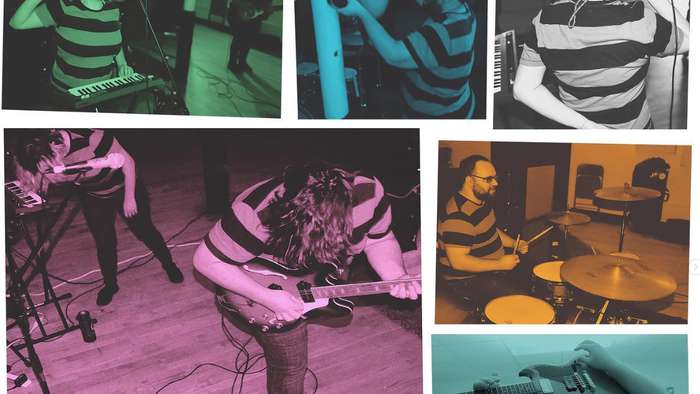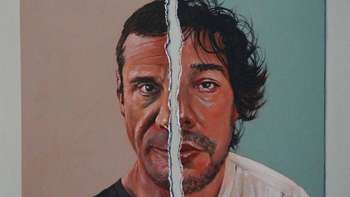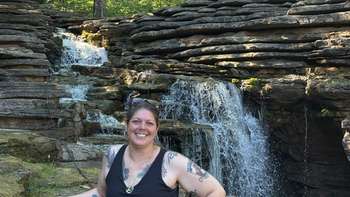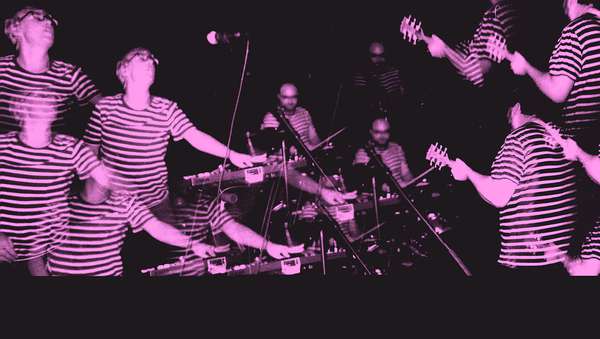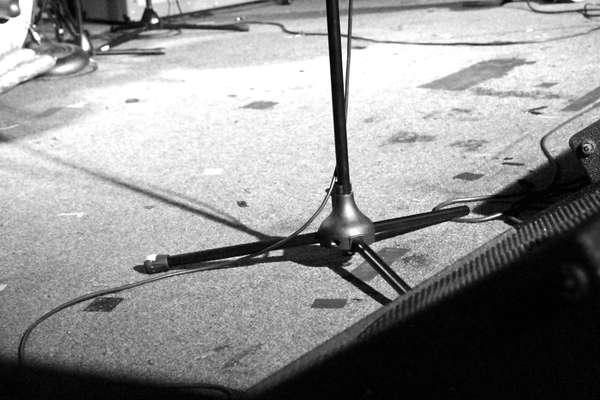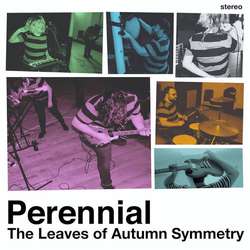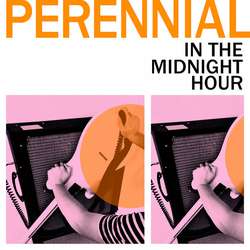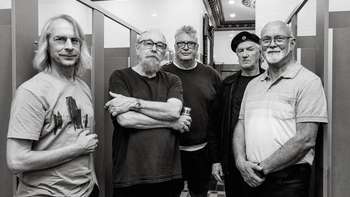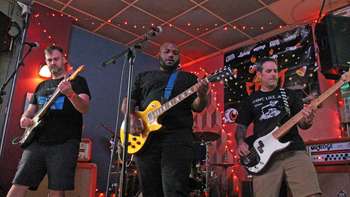Earlier this year I reviewed The Leaves Of Autumn Symmetry. I really enjoyed the EP. So, when the band contacted us if I wanted to do an interview my first thought was it could be awesome to catch a glimpse behind the creative process of this band. You can read the end result of our short and pleasant exchange here.
Scene Point Blank: Before we really kick off this interview, please introduce yourselves. Who is Perennial?
Chad: Chelsey - Vocals and electric organ
Chad - Vocals and electric guitar (and interviewee for this article)
Wil - drums
Scene Point Blank: What does the writing process look like for Perennial?
Chad: Typically someone will bring an idea into practice -- a guitar riff, a chord progression, even just a concept for a certain aesthetic/style -- and we’ll build it as a group from there. Once we have the basic structure of the song, Chelsey and I will write lyrics and melodies. After that it’s all about fine-tuning it one last time as a group before we bring it into the studio or add it to the setlist.
Scene Point Blank: On your latest EP you decided to re-record a couple of tracks from your debut album (from 2017). Why did you choose these tracks? And why not just the whole album?
Chad: We chose the five songs for the EP because those were the songs that we were still playing live in the four years since they had originally been released. In that time, the way we played them live had sort of re-shaped the songs a bit, so we wanted to have a record that reflected where Perennial was/is in recent years sonically, so that folks can listen to either iteration and get a sense of how “The Perennial Sound” has changed, grown, etc..

Scene Point Blank: I am familiar with metal bands re-recording their classics, usually 20 or 30-plus years after the original release. Here we are only talking about a couple of years. So why re-record them now?
Chad: That’s interesting! We don’t really listen to metal so I actually had no idea that was a trend in that genre. For us, it was partly a matter of timing -- we had a minute between releasing our 2022 LP, In The Midnight Hour, and beginning work on our third LP. In The Midnight Hour really felt like an important milestone for us as a band, and we liked the idea of taking the opportunity to look at some older songs through the lens of how we approached the studio today. And these were just a handful of songs we loved that we decided would be rewarding to explore again.
Scene Point Blank: On your last two releases you worked with the same producer. Is this the first sign of a long(er) term collaboration?
Chad: I think so! Chris (Teti) is a wonderful collaborator who has a terrific ear for what’s working and what isn’t. We also have a very similar lexicon of musical reference points so we can communicate ideas back and forth very efficiently. With each project we’ve really wanted to push ourselves as studio artists, seeing what exactly we can do with punk music as a recorded, impressionistic art form. Chris is game for that project.
Scene Point Blank: While the songs are re-recorded tracks from the debut and the title is a play on the debut title, the artwork is much more in line with the artwork of your second album. Is that to signify a connection between the second album and the EP?
Chad: That’s exactly right! That’s a very good way of thinking about what the EP is: older songs, but re-worked through the lens of what we’re doing now and what we’ve worked on recently. I also think we’ve been exploring a lot of ‘60s mod/garage rock/beat music sounds, and the aesthetics of the title echo that focus I think.
Scene Point Blank: That explains a lot. I would also add that the artwork has a certain ‘60s feel. On the second album we also see a couple of re-recorded songs from previous EPs. Why did you re-record those tracks?
Chad: Ironically, it was actually the other way around. We approached In The Midnight Hour very deliberately, taking lots of time to try out different frameworks for each song, adding and subtracting layers, etc... But we also knew that we were keeping folks who wanted to hear new Perennial music waiting, so we released a few alternate versions of some of the songs we had been playing live (“The Skeleton Dance” and “Food For Hornets”) so folks could have those songs and know them when they saw us live, and get a sense of where we were headed for our second record.
"We’ve really embraced Perennial the live band and Perennial the studio project as two unique elements of what we do."
Scene Point Blank: Mustn't keep folks waiting! Excellent mindset. I must admit that I have a hard time understanding what the lyrics are about. Is there a message to be found there? If so, please talk me through it!
Chad: A lot of times our lyrics are more impressionistic than necessarily literal or directly linear in terms of meaning. Chelsey and I enjoy playing around with words as much for their rhythm or imagery as anything else. You could think of it as modernist poetry in that way: it’s about what the words evoke or how they play with the music as much as any specific message or story.
Scene Point Blank: How does your music translate to the stage? There is a lot going on with two folks playing a lot of different instruments on the record. Is the live band a bigger band than the studio band just to be able to reproduce what’s on the record?
Chad: We’ve really embraced Perennial the live band and Perennial the studio project as two unique elements of what we do. Live, the focus is on energy, motion, making sure that we’re always moving, trying to make the songs captivating for the audience right there in the moment. So the live iterations of songs tend to be much more minimal: we make do with what we can produce with one guitar, one organ, and one drumset. The studio is almost the opposite: we see it as a collage where we can add and subtract things to our heart’s content. The whole fun of it, for us, is that there’s a world of aesthetic possibilities. We embrace what both the live performance and the studio resources free us up to do, and the challenges both present.
Scene Point Blank: Talking about live shows: what does the ideal Perennial live show look like? And who do you ideally share the stage with?
Chad: Our ideal show is a 20-minute performance where we never stop moving. In terms of sharing the stage, we’re very lucky to have played with so many amazing, kind, brilliant bands. Honestly, we just love to see bands that love what they’re doing. Enthusiasm is such an important thing to us.
Scene Point Blank: Last question for this interview: on “Resolver” you mention that all we need is a decent beat. Have we found that yet?
Chad: Of course! We’re just always eager to hear the next new beat.
Scene Point Blank: Keep searching and keep bringing them, both through your records and your liveshows! Anything else you want to share with us?
Chad: Thank you for the thoughtful questions.
